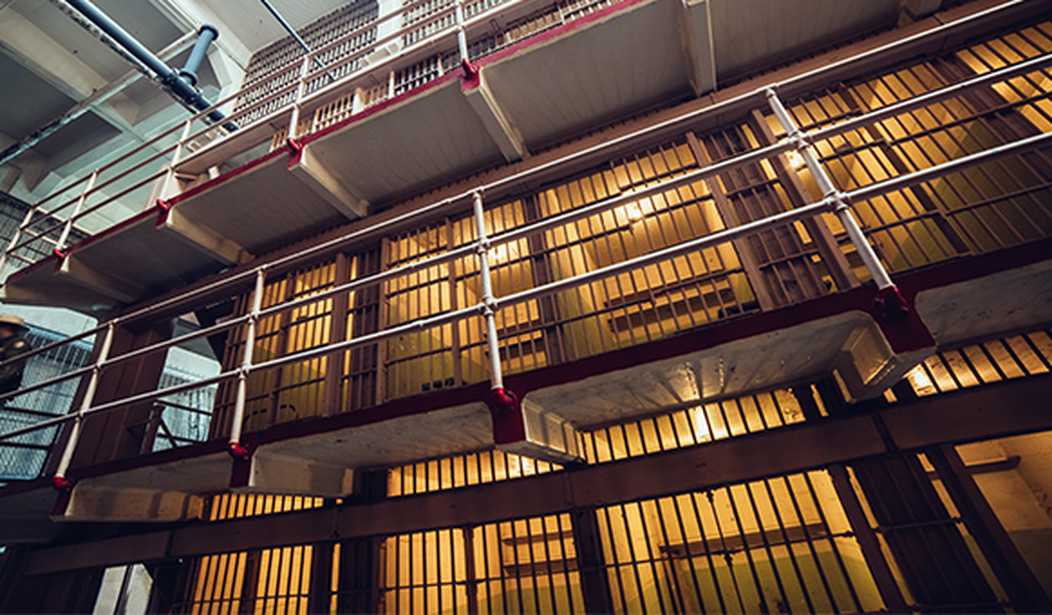Technically, the lawsuit filed by the American Civil Liberties Union claims that Weld County, Colorado Sheriff Steve Reams is violating the rights of inmates by keeping them locked up in close proximity to one another during the coronavirus pandemic, but the real goal of the litigation is to reduce the number of inmates behind bars. The lawsuit, filed in federal court, claims that Reams “failed to take adequate measures to protect people in jail, correctional staff and the public from COVID-19, resulting in a substantial outbreak in the Weld County Jail.”
According to the class action lawsuit, “high risk” inmates in Weld County are being put at risk by being forced to remain behind bars instead of being set free by the sheriff. In an emotionally wrought argument, ACLU attorneys say that it’s impossible for jails to practice social distancing measures, including keeping inmates six feet away from each other at all times.
Here in Colorado, prior to the pandemic, almost all jails housed incarcerated people in conditions that made physical distancing impossible, with prisoners eating, sleeping and using the toilet within a few feet of one another. However, based on guidance from the Centers for Disease Control (CDC), the Colorado Department of Public Health and Education (CDPHE), and Governor Jared Polis, several Colorado jails have substantially decreased their jail population in an effort to make physical distancing possible and to protect high-risk inmates.
The Weld County Jail, however, is far behind other Colorado counties in efforts to safely lower the jail population, and current conditions in the Weld County Jail pose a serious, obvious, and emergent health and safety risk to inmates, staff and the public. Many inmates are housed at least 3-4 to a small cell, with some cells housing as many as 9 inmates. Until just days ago, inmates ate and recreated shoulder-to-shoulder, with no efforts at physical distancing, even as several inmates showed symptoms consistent with COVID-19. Now, with recently confirmed cases, inmates are on lockdown 23 hours per day, with some non-symptomatic inmates locked in cells with sick inmates. Only some (but not all) very sick patients are quarantined, and the rest are left in packed cells to spread the virus to others.
Of course, this is something that virtually every penal institution is dealing with, not just the Weld County jail, and in Colorado, the state’s judiciary system has declined to order jails to release inmates in order to decrease the number of individuals being held behind bars. The ACLU isn’t specifically asking for Sheriff Reams to release inmates, but rather is demanding that Reams comply with a series of impossible conditions.
The Weld County Jail must respond to and manage the continued risk of harm posed by the COVID-19 outbreak by following CDC71 and other public health guidelines. This requires, among other things: (a) physically distancing all inmates from one another and staff within the Weld County Jail, which necessitates at least six feet of distance between individuals at all times; (b) on a daily basis, thoroughly and professionally disinfecting and sanitizing the Weld County Jail; (c) providing hygiene supplies, including supplies to wash hands and disinfect common areas, to inmates at all times and free of charge; (d) providing personal protective equipment, including but not limited to masks, to all staff members and inmates; (e) taking particularly heightened precautions with respect to food handling and delivery, such as ensuring that people who come into contact with food are not displaying any potential symptoms of COVID19, have not recently been in contact with people displaying potential symptoms of COVID-19, and people who come into contact with food wear appropriate personal protection at all times when in contact with food (including but not limited to appropriate masks and gloves); (f) implementing appropriate policies and protocols to identify inmates who are possibly carrying COVID-19 and quarantine those inmates from other individuals; and (g) providing accurate, up-to-date educational and informational materials regarding sanitation and prevention of COVID-19, the status of how COVID-19 is affecting the facility including the number of infected inmates and staff, and daily access to news reports regarding COVID-19.
How can any prison or jail ensure that staff stay six feet away from inmates at all times? And how can the staff ensure that inmates stay six feet away from each other at all times if they can’t get within six feet of an inmate? How can the entirety of the Weld County jail be disinfected on a daily basis without moving inmates? How can the Weld County jail provide masks to all inmates? Couriers in Colorado who are transporting COVID-19 samples can’t get masks at the moment, but Sheriff Reams is supposed to come up with hundreds of masks every day for inmates in the jail?
As of Thursday, there were 13 Weld County deputies and 9 inmates who had tested positive for the coronavirus. It’s likely that many more are pre-symptomatic, but there’s no way to know how many infections there might be in the jail without testing all staff and inmates.
The argument that inmates are at a heightened risk of coronavirus infection is a valid one. Around the country, we’ve seen rapid spread of the coronavirus in nursing homes, which are also facilities that typically have a large number of people confined inside together. There’ve been outbreaks at facilities like Rikers Island in New York, where more than 700 people, including more than 400 correctional officers have tested positive.
In fact, Rikers Island has released a number of inmates, and the prison is still experiencing a surge in the number of positive cases. The sad truth is that unless you reduce the prison or jail population to the point that every inmate has their own cell, and reduce the number of corrections officers to a skeleton crew, it will be easier for the coronavirus to spread behind bars than it will be in an apartment building or suburban neighborhood. During the Spanish Flu of 1918, prisons were hard hit as well, with San Quentin Prison in California the site of three separate outbreaks between April and November of that year. Even at the peak of the pandemic, however, the prison didn’t simply open its doors and let most inmates walk free.
Americans have accepted (to one degree or another) many abnormalities in their daily lives over the past few weeks, but asking them to accept the wholesale release of inmates, even those awaiting trial who haven’t been able to make or have been denied bond, is a bridge too far. Is it possible for Sheriff Reams to release some low-level offenders without adding to the risk of public safety? Probably. Is it up to the sheriff to determine if that’s the best policy for his office? Absolutely.
Honestly, there’s also a real case to be made that with community transmission taking place in these jails, it’s a danger to the public to release inmates who may be infected with the coronavirus back into their neighborhoods. Nine inmates in Weld County have tested positive so far, but it’s almost a certainty that there are inmates who are infected who haven’t shown any symptoms yet, and based on the large number of asymptomatic cases that we’ve seen with this virus, there are likely some inmates who never will show any signs of the disease, but can spread it to others.
There truly are no easy answers here, but it’s clear what the ACLU wants: a federal judge to impose impossible-to-meet mandates on the sheriff so that, when he fails to comply, the judge can order a dramatic emptying of the Weld County jail.









